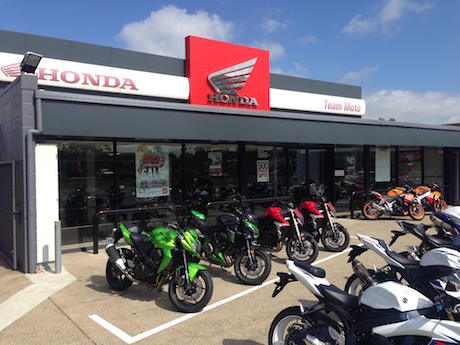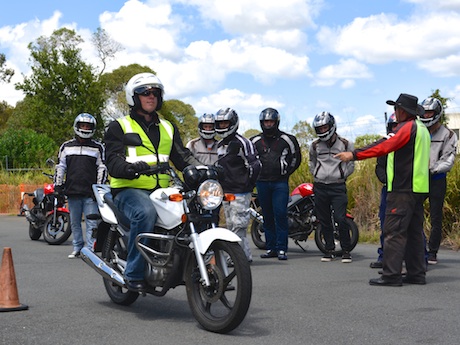The first float of a motorcycle dealership network on the Australia Stock Exchange has been a success and focussed serious and favourable business attention on the motorcycle industry, according to the company’s boss.
MotorCycle Holdings Managing Director David Ahmet says the float on April 29, 2016, was over-subscribed seven times.
The company has 34 franchises in 24 locations mainly in Queensland and NSW, mostly under the dealership name of TeamMoto.
David says that apart from the motorcycle industry now being taken seriously by the business community, the float also means the company can expand and, with their big buying power, secure better prices and services for their customers.
“Our scale and size means we have tremendous buying power which means we can buy at the right price and pass that on to customers,” he says.
“But also in many other ways it means we can invest in the dealerships, marketing, systems, products and events such as our test ride day at Lake Wivenhoe.”
The annual Test Ride Day at Lake Wivenhoe was held on Sunday, May 15, 2016, with 25-minute extended test rides, two bikes to each rider, a variety of bikes to choose from, plus free drinks and food.
“It’s a goodwill exercise and we can now afford to do that as our scale gives us that scope.”
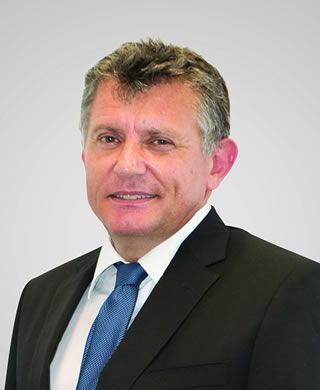
HISTORY LESSON
David, 51, started the business in 1989 when he bought Moorooka Yamaha with John Oliver. Over the years they built a formidable number of dealerships under the TeamMoto banner. John retired and left the business about five years ago.
David brought in Archer Capital’s Growth Fund as an equity partner on a five-year deal and with their departure, he decided to list the company rather than secure another partner.
“This suited me as the biggest shareholder so I get to keep running the company the way I want to … with the board’s approval, of course,” he says.
“It puts me in the box seat as the significant decision-maker.”
PUBLIC LISTING
His decision to float paid off with the listing (ASX stock code MTO) seven-times oversubscribed and the $2 shares hitting the market at $2.57.
“It was a big day,” he says. “We increased share value 35% on the first day. It’s hit a high of 50% up ($2.92) and has settled around 40% around $2.80.
“It was a bit of a punt and I wasn’t quite sure how well it would be received by the investment community.”
He says that the successful float has raised the profile of the motorcycle industry and might also make more politicians take notice.
“It’s introduced the industry to a whole range of people who never considered it a genuine business.”
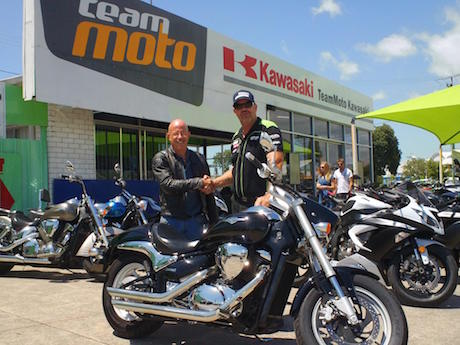
David says the banks and “big funds” all wanted a slice of this business, but many companies had their allocation scaled back by up to 10 times.
“The Commonwealth Bank purchased all of their shares (approximately $5-$6m) after the listing and from the market, so they obviously have seen something there,” he says.
David was a busy man in the lead-up to the listing.
“I did 72 investment presentations to managed funds and 61 wanted shares in Brisbane, Sydney, Melbourne and Auckland. Teleconferences included investment funds in Hong Kong, Singapore and Perth.
“It was a wide audience, but they all loved the story and found the fundamental financials stack up: no change of management for 27 years and I was staying on and not selling shares. This was not an exit strategy for me.
“They like my passion for the business.”
MOTORCYCLE PASSION
He certainly does still have the passion.
As soon as the conversation turns to motorcycles, David becomes more enthusiastic.
“I have a road bike background but I like all sorts of bikes now,” he says.
“My first bike was at the age of 7; a Dixon frame and a Victa motormower engine with no brakes.
“I’m still riding heaps. I have four bikes in my garage at home and three or four at my property.
“My fave is a Kawasaki H2. I added another 60hp at the back wheel which it didn’t really need. It as 250hp at the back wheel now. The biggest gain is the ECU software. That’s where the R model gets its power from. It’s the same engine with different cams plus an air filter and exhaust, but mechanically the engine is the same.
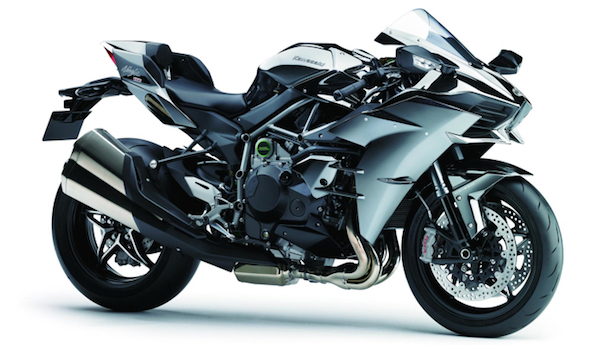
“I ride my bikes all the time. I ride to work a lot and I like to ride on the weekends. I’ve got too many speeding tickets.”
He also owns a Harley-Davidson Breakout, a BMW R nineT, a Yamaha R1, several dirt bikes and says he gets to ride any of the used or demo bikes from the stores.”
COMMUTING
While he commutes to work, David is skeptical of motorcycle commuters.
“Saying you bought a bike to commute is really just an excuse,” he says.
“That’s not why they buy them. They buy the bike to use on the weekend and justify it by riding to work some days.
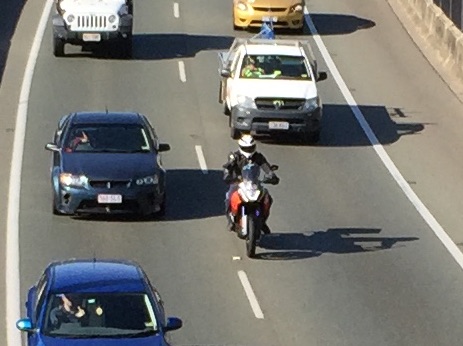
“I don’t see that many riding to work Monday to Friday, but there are hundreds out on the weekends.
“Buying a motorbike is a discretionary spend and that won’t change any time soon.”
FUTURE GROWTH
David is optimistic for the future of the motorcycle industry, but is also a realistic about its recent performance.
“The future will get some legs when the economy grows,” he says. “I thought that might have been last year, but it wasn’t.
“Motorcycles will do well when people feel affluent and home prices are high. The Sydney market was particularly strong last year when real estate values were strong.”
The MC Holdings prospectus forecasts this financial year’s profit at $11.3m profit and David says they are on target with just two months to go.
But he says the industry has been hard hit by the 2009 GFC and still hasn’t recovered.
“The industry had a good run last decade but not this decade. It’s still falling,” he says. “There was a minor recovery in 2011, but bike sales have dropped again. Queensland has been one of the toughest markets in Australia.”
He says the controversial anti-association VLAD laws in Queensland made business tough, but not impossible.
“The whole bikie thing was a bit tough for a while and there were freedom issues breached but it didn’t affect us much,” David says.
“In fact, we kept selling Harleys on the Gold Coast which boomed at the same time. We’d just bought the dealership and relocated. If it did cost us some business, I would never know, but I was happy.
“The mining communities also bought a lot of Harleys during the boom and now they’re selling a lot of Harleys.”
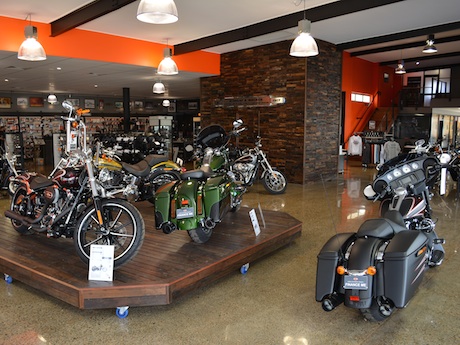
David says MC Holdings has been able to achieve good results and grow since the GFC because of a strong management team that knows what it is doing.
“People have been saying sales will slow because of the election, but April was really good and we are very comfortable with our forecast. It was an ambitious forecast.”
MORE DEALERSHIPS
David says the future for the company is more growth in dealerships.
“There is no public company that doesn’t want to achieve some growth,” he says.
“That’s how we’ve run the business; a sensible progression of dealerships.
“That’s always been our plan and we have more motivation now than ever because we can easily raise capital through the stock market.
“We’ve been given a green light to go for it without having to go to the bank.”
Apart from the TeamMoto dealerships, MC Holdings also bought the Morgan & Wacker Harley-Davidson and BMW dealerships in Brisbane and on the Gold Coast and followed up by buying Harley dealerships in Sydney and Canberra.
“We very much have Harley on our agenda and have a good relationship with them and they want us to buy more dealerships,” he says.
“Harley has an enormous market share. It just dominates.
“But while we don’t have Ducati, we don’t have the complete package. I think I want one. We already sell more second-hand Ducatis than anyone in Queensland.”
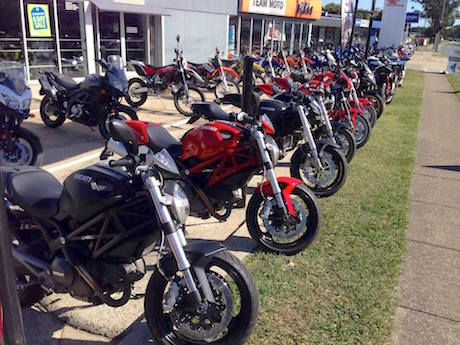
CHANGING INDUSTRY
David says the motorcycle industry has become more professional in the past decade.
“The big change in our industry I have noticed is that motorcycles are now more mainstream in the community,” he says.
“We’re not bikies to be feared but mums and dads.
“The presentation of the dealerships have also changed. We are not grubby and oily bikies, but normal people presenting ourselves. Our image has changed somewhat.
“And in the last 10 years the number of registered motorcycles have doubled in Australia from 400,000 to 800,000.”
David sees the future of motorcycling including more women, more learner bikes, more training and electric bikes.
“Traditionally our customers are only 8% female, but there is a real kick on girls wanting to ride bikes,” he says. “The female customer is a real growth area.
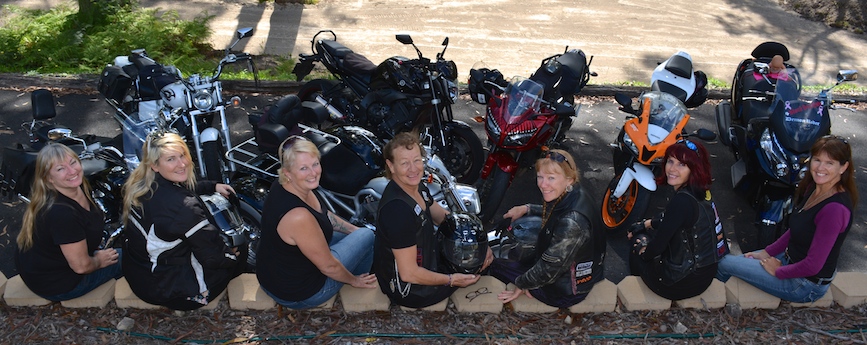
“It’s because there are now a lot more suitable bikes and they’re affordable since the introduction of the LAMS (learner-approved motorcycle scheme).
“It made it more affordable and made the bikes less intimidating. It gave them a type of motorcycle they could identify with and not too big.
“In the past they didn’t have many user-friendly bikes under 250ccs.
“Now there are several single-cylinder 300s that are light and nimble. Even my 21-year-old daughter rides. She has a Honda CBR300. She rides it to uni and likes the easy parking.
“She was born into a motorcycle family but wasn’t particularly into it, but now she sees it as a cool thing to do. That’s some of the motivation. Bikes are now cool, even for girls.”
Learner bikes are helping to keep the industry afloat, he says.
“If we look back to the GFC when motorcycle sales fell of a cliff, the strongest part of the market was learner approved which has kept us going. Now the premium bikes are coming back.”
TRAINING
Despite a strong reliance on learner motorcycles, David is not concerned about increased training requirements being introduced in several states.
“Queensland Transport is about to change the licensing rules with more training before you get your learners,” he says.
“I think that’s a good thing.”
The business is well-positioned to reap the benefits of increased training requirements, having bought the Motorcycle Riding School 15 years ago as a separate business and turning it into one of the biggest QRide service providers.
“We will develop a new course for the learners that they will have to pass before they get on the road.
“We’re getting a lot of girls through the riding school. In fact, 30% are female.”
LONG FUTURE
David says motorcycles have been around for 100 years and have a long future ahead.
“They might change, but they won’t quit,” he says.
“The technology has just boomed in the past few years with electronic suspension and so on. Bikes have come so far they make an average rider so good.
“Electric bikes are also on their way.
“They are getting there. Battery life is getting better, but you must admit they are fast. It’s only a matter of time before we are selling them.”
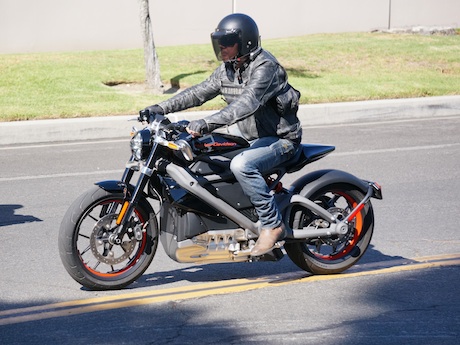
FIVE YEARS
So where does David see himself in five years?
“It’s hard to get this business out of my blood,” he says.
“I started at the age of 23 and can’t imagine myself in another industry. Maybe later in an advisory role.
“It’s a product to be very passionate about.
“The industry will ebb and flow, but it has a good future.”


